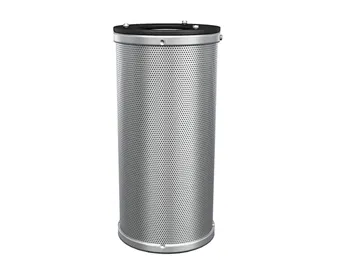 Tel:
+8615930870079
Tel:
+8615930870079
Oct . 02, 2024 07:16 Back to list
Effective Antistatic Filter Elements for Enhanced Protection and Performance in Various Applications
Understanding Antistatic Filter Elements A Comprehensive Overview
In industries where precision and cleanliness are paramount, the role of filtration systems cannot be overstressed. One of the key components that has gained significant attention in recent years is the antistatic filter element. This specialized filtration technology is designed to mitigate the effects of static electricity, ensuring not only efficient filtration but also the safety and integrity of processes and products. In this article, we will explore the concept of antistatic filter elements, their benefits, applications, and maintenance.
What are Antistatic Filter Elements?
Antistatic filter elements are filtration devices incorporated with materials designed to dissipate static electricity. These elements can be made from various synthetic fibers, metals, or conductive polymers that possess inherent conductive properties. The primary purpose of these filters is to prevent the build-up of static charges that could attract dust and other particulates, thereby ensuring cleaner air and extending the life of costly equipment and processes.
The Importance of Antistatic Properties
Static electricity is a common concern in many industrial settings, particularly those handling flammable materials, sensitive electronic components, or volatile powders. The presence of static electricity can lead not only to equipment damage but also to hazardous combustion situations. Antistatic filter elements help to reduce the risk of ignition by providing a controlled path for static to dissipate, thus enhancing workplace safety.
Moreover, in environments dealing with sensitive electronic devices, even minor static discharges can cause significant malfunctions or damage. Antistatic filters play a crucial role in protecting these components by ensuring that static electricity does not interfere with operational processes.
Benefits of Antistatic Filter Elements
1. Enhanced Safety By dissipating static charges, antistatic filter elements help prevent explosions and fires in environments where flammable materials or dust are present.
2. Improved Air Quality These filters efficiently trap particulate matter, leading to cleaner air within workspaces, which is essential for both product quality and worker health.
3. Equipment Longevity By preventing the accumulation of dust and static electricity, antistatic filters help extend the lifespan of machinery, reducing maintenance costs and downtime.
4. Compliance with Regulations Many industries are subject to stringent safety and cleanliness standards. Using antistatic filter elements can help ensure compliance with these regulatory requirements.
antistatic filter element

Applications of Antistatic Filter Elements
Antistatic filter elements find applications across numerous industries
- Pharmaceuticals In pharmaceutical manufacturing, maintaining sterile environments is crucial. Antistatic filters help to reduce contamination risks from airborne particles.
- Electronics Manufacturing In the production of electronic devices, the avoidance of static discharge is vital. Antistatic filters ensure that static does not accumulate in cleanrooms or assembly lines.
- Food Processing In food production and packaging, static can attract contaminants, posing a risk to food safety. Antistatic filters help maintain clean atmospheres.
- Chemical Industries Many chemicals can be volatile and susceptible to combustion. Antistatic filtration systems enhance safety measures in chemical handling processes.
Maintenance of Antistatic Filter Elements
Proper maintenance of antistatic filter elements is crucial for their effective performance. Regular inspection and replacement should be part of a scheduled maintenance plan. It is essential to adhere to the manufacturer’s guidelines regarding the lifespan and replacement schedule of filters to ensure optimal performance.
Cleaning processes often depend on the type of filter. For reusable filters, periodic washing may be required, while single-use filters should be replaced as needed. Ensuring that the filter remains free from dust and build-up will enhance its antistatic properties and overall efficiency.
Conclusion
Antistatic filter elements are a vital component in modern filtration systems across various industries. With benefits ranging from improved safety to enhanced air quality and equipment longevity, these filters play an essential role in ensuring that industrial processes run smoothly and safely. As industries continue to evolve and adapt to new challenges, the importance of antistatic filter elements will undoubtedly grow, making them indispensable tools in maintaining a safe and efficient working environment.
-
Types and Applications of Air Filtration CartridgesNewsJul.28,2025
-
The Role of Gas Turbine FiltersNewsJul.28,2025
-
Mastering Air Filter Cartridge UseNewsJul.28,2025
-
Advanced Turbine Filters for Modern Gas TurbinesNewsJul.28,2025
-
Cellulose Air Filter Cartridge Advantages in Dust FiltrationNewsJul.28,2025
-
Cellulose Filters for Air Particle ReductionNewsJul.28,2025

 Email:
Email:





